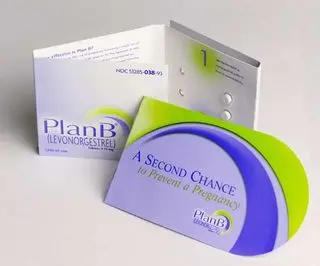Administration of Plan B Contraceptives to Victims of Rape

May victims of rape be administered a “Plan B” (levonorgestrel-only) contraceptive?
Catholic bishops, ethicists, and researchers have given a variety of answers to this question. Some forbid its use entirely, others permit it only after certain tests are done, still others allow it every time a victim of rape seeks care. This disparity in policy is primarily a result of the status of the science that continues to explore how this drug works.
The Church’s moral teaching regarding this matter is summarized by the Bishops of the United States in the Ethical and Religious Directives for Catholic Health Care Services:
A female who has been raped should be able to defend herself against a potential conception from the sexual assault…. It is not permissible, however, to initiate or to recommend treatments that have as their purpose or direct effect the removal, destruction, or interference with the implantation of a fertilized ovum. (36)

1. Recent robust studies indicate that Levonorgestrel-only contraceptives such as Plan B often fail to block ovulation, and often have a post-ovulatory effect if administered prior to ovulation. When administered during the first 4-5 days of the fertile window the post ovulatory effect of Plan B is likely to result in abortion.*
2. A Luteinizing Hormone (LH) protocol – a test whose outcome has been understood to determine whether Plan B can be administered based on where the victim is in her cycle – cannot in fact detect that a woman is in these first days of her fertile window. Therefore a negative LH test may well encourage administration of Plan B precisely when it is most likely to cause an early direct abortion.**
3. Because recent scientific studies have provided very strong data that indicates Plan B usually does not prevent ovulation and is likely to have embryocidal effects, a medical practitioner cannot attain moral certainty that administration will not lead to early abortion.
4. Since one cannot attain moral certainty that abortion will be avoided, protocols and policies that currently permit Catholic health care providers to administer Plan B should be reconsidered by the appropriate authorities and administrators. Nations in which abortion is illegal should be aware of this potential abortion-inducing effect and should prohibit the administration of these drugs.
These are our conclusions pending any developments in scientific research. Further, it appears that no contraceptive exists that is known to satisfy the moral principles expressed above.
The urgency of addressing this matter comes to light when one considers the Church’s teaching regarding abortion expressed most recently in Dignitas personae:
It must be noted, however, that anyone who seeks to prevent the implantation of an embryo which may possibly have been conceived, and who therefore either requests or prescribes such a pharmaceutical, generally intends abortion. … Therefore the use of means of interception…fall within the sin of abortion and are gravely immoral. (23)
Here we have considered the use of a contraceptive following the unjust act of rape. We must, however, also reaffirm the Church’s unchanged and unchangeable doctrine on both abortion and the contraception of the marital act – both remain morally illicit without exception. As Pope Saint Paul VI wrote in Humanae vitae, “it is necessary that each and every marriage act remain ordered per se to the procreation of human life.” (11)
We hope that the urgency of revisiting the approval of Plan B for treatment of women who have been raped will be recognized. These women deserve the absolute best life-affirming care possible, and this care should not include drugs that may compound the violence already suffered.
Further, we encourage those concerned both for women who suffer rape and for nascent human life to approach this matter in a spirit of respect, sincere study, and in deep prayer. In this way these and all our answers to questions about human life and dignity express, in the words of Dignitas personae, “a great ‘yes’ to human life.”
—-
* There is a distinction in the scientific community between an abortifacient effect, which disrupts a pregnancy after implantation, and an embryocidal effect, which is “interceptive” or prevents implantation. Plan B appears to have the latter, embryocidal, effect. Since a human life is destroyed in either case, the distinction is not moral but technical, so we have stayed with the common language term and note here the difference.
** Previous scientific statements on Plan B’s mechanism of action declared Plan B to work mainly by preventing ovulation. Recent scientific evidence suggests, however, that Plan B rarely works by preventing ovulation. Moreover, recent scientific evidence also shows that Plan B has no effect on cervical mucus or sperm function. Finally, as suggested in Point 1, recent evidence suggests that due to shortening of the luteal phase and other indicators, Plan B may likely prevent the new embryo from implanting into the uterine wall, resulting in an embryocidal effect.

